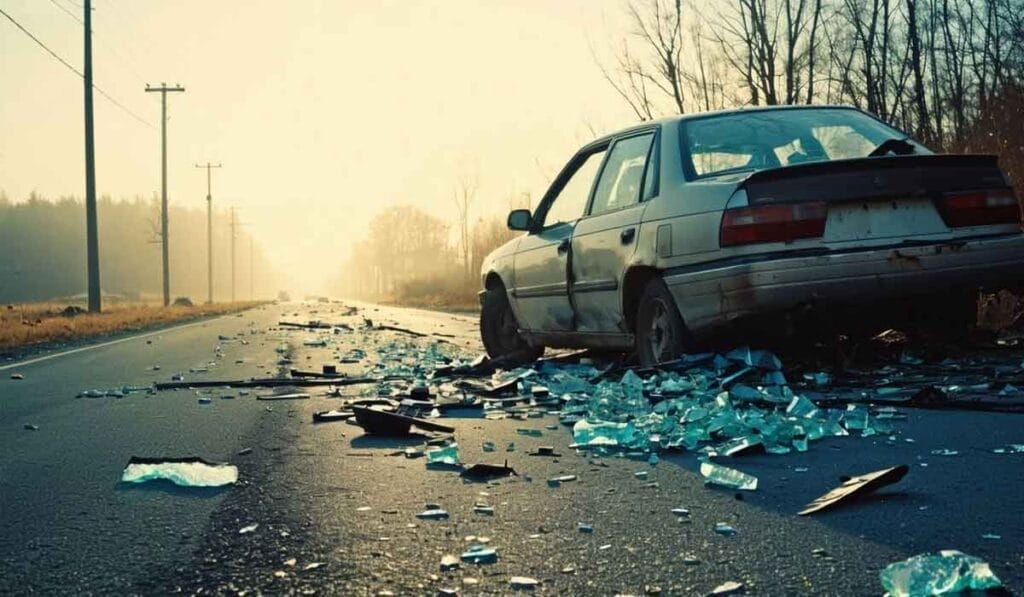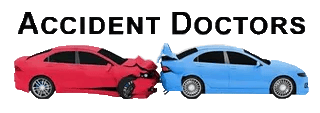The Ultimate Guide to Understanding Anxiety Symptoms After Car Accidents
Feeling on edge after a car crash is common.
Many people experience anxiety and stress afterward.
This guide will walk you through understanding and managing these feelings.
Please note: We are accident doctors who charge you $0 out of pocket for the best after car accident medical care.
We can help you overcome PTSD from an accident too.
TIP: You should come in and get treated by us first, and then we’ll refer you to the best auto accident attorneys in Phoenix or Mesa.
Key Takeaways
Primary Symptoms
Common Anxiety Signs
- Rapid heartbeat and dizziness.
- Hypervigilance and constant alertness.
- Emotional detachment.
- Intrusive thoughts and flashbacks.
- Sleep disturbances.
Treatment Options
Professional Interventions
- Cognitive Behavioral Therapy (CBT).
- Medication options like SSRIs.
- Psychotherapy and counseling.
- Support group participation.
- Trauma-focused therapy.
Self-Management Strategies
Personal Recovery Tools
- Mindfulness practices.
- Breathing exercises.
- Gradual exposure techniques.
- Regular exercise.
- Stress management routines.
Support Systems
Essential Networks
- Family and friends involvement.
- Professional medical team.
- Support groups.
- Mental health specialists.
- Community resources.
Recovery Timeline
Healing Process
- Individual progress varies.
- Consistent treatment participation.
- Regular progress monitoring.
- Adjustment of treatment plans.
- Long-term support availability.
Exploring Anxiety Disorders Following Car Accidents

After a car crash, many people face tough challenges with their mental well-being.
They may deal with acute stress disorder, signs of PTSD like nightmares and flashbacks, or even generalized anxiety, which shows up as constant worry over daily activities.
Acute Stress Disorder Symptoms

Experiencing a traumatic event like a car accident can lead to acute stress disorder (ASD), where your emotional and mental health are deeply affected.
Symptoms include flashbacks of the traumatic event, nightmares that replay the incident, and overwhelming fear.
These aren’t just bad dreams or worries; they feel vividly real, causing sweat and shaking.
You might find yourself avoiding places or situations that remind you of the crash, which is known as avoidance behavior.
It’s like your mind builds a wall to keep you away from any reminder of what happened.
Another key symptom is feeling numb or detached from others—you might not care about activities you used to love.
Emotional numbness creeps in, making it seem like you’re just going through the motions without really feeling anything.
On top of this emotional detachment, there’s hypervigilance – being on constant alert for danger even when it’s not there.
Your heart races at small noises that wouldn’t have bothered you before.
Strength lies in facing our fears head-on—with support, understanding, and acceptance.
Your body also reacts with physical signs such as rapid heartbeat and shortness of breath during moments of anxiety or panic attacks triggered by memories of the accident.
This high level of tension and nervousness isn’t something you can easily shake off; it demands attention and care from both yourself and professionals who understand these responses to trauma.
Signs of Post-Traumatic Stress Disorder

You might notice certain signs if you’re dealing with post-traumatic stress disorder (PTSD) after a car accident. Flashbacks are common, where you feel like you’re reliving the crash over and over again.
These aren’t just memories; they feel incredibly real, as if the traumatic event is happening all over again in the present moment.
Nightmares about the accident can disrupt your sleep, leaving you tired and on edge during the day.
You may also find yourself avoiding places or situations that remind you of the trauma—a behavior known as avoidance behaviors.
Another sign is feeling constantly on guard or hypervigilant, as if danger is always around the corner.
This state of heightened alertness can exhaust you both mentally and physically.
Irritability or mood swings might become part of your daily life, making it hard to connect with others or handle everyday stresses.
A once routine drive down familiar roads could now spike intense fear or anxiety—an example of irrational fears gripping those affected by PTSD.
Understanding these signs means recognizing when to seek help from mental health professionals skilled in PTSD treatment like cognitive behavioral therapy (CBT) or eye movement desensitization and reprocessing (EMDR).
Reaching out for professional support marks a brave step towards reclaiming control over your emotional well-being after enduring such a traumatic life event.
Generalized Anxiety Disorder Indicators

Living through a car accident can deeply affect your mental health, leading to emotional distress and anxieties that weren’t there before.
After such traumatic events, signs of Generalized Anxiety Disorder (GAD) may appear.
These indicators include constant worry about everyday things, much more than usual. Your sleep might suffer because your mind races with thoughts at night.
Feelings of restlessness or being on edge are common with GAD.
Even muscle tension or difficulty focusing on tasks could signal this condition after experiencing emotional trauma from traffic accidents.
It’s not just the fear of driving again; it’s an overwhelming anxiety that seeps into various aspects of life, disrupting normal functioning and causing significant stress.
Identifying Anxiety Symptoms Post-Accident
After a car crash, it’s crucial to watch for signs of anxiety. This can help you find the right support and start healing.
Recognizing Hypervigilance

Hypervigilance is a state where you’re always on high alert, expecting danger at every turn.
This can be a direct result of traumatic events, like car accidents, which imprint deep emotional scars.
You might notice yourself scanning the room for exits or feeling uneasy in crowds.
Such behaviors are signs you’re experiencing hypervigilance, a common symptom of post-traumatic stress disorder (PTSD).
Your senses could become unusually sharp, making you react to slightest noises or movements around you.
It’s your body’s way of trying to protect you from perceived threats.
Living with this level of constant anxiety can be exhausting and may interfere with daily activities and your ability to drive or even ride in cars without fear.
Coping strategies for hypervigilance include mindfulness practices and seeking support from therapists specialized in PTSD and trauma recovery.
Techniques like cognitive behavioral therapy have shown great success in helping individuals regain a sense of normalcy after personal injury incidents that led to psychological trauma.
Understanding that hypervigilance is a natural response to what you’ve been through helps begin the journey towards healing.
Signs of Emotional Detachment

Emotional detachment often creeps in after experiencing traumatic events, such as car accidents.
You might find yourself feeling disconnected from your emotions or the people around you.
This can manifest as appearing uninterested in activities that once brought joy or avoiding close relationships to shield oneself from potential emotional traumas.
It’s a defense mechanism, serving as a buffer against further mental trauma but at the cost of one’s emotional health.
You may notice you’re pulling away from social interactions and prefer being alone.
This withdrawal isn’t just about craving solitude; it’s about protecting oneself from stressors that seem overwhelming now.
Emotional numbness is another sign, where you feel indifferent towards situations that would typically evoke strong emotions, whether happiness or sadness.
Such changes signal a significant shift in how you process feelings and connect with the world—hinting at deeper mental health issues stemming from the accident.
Recognizing signs of emotional detachment is crucial for healing—not just for patching up visible wounds but mending the invisible ones within.
Physical Symptoms of Anxiety: Rapid Heartbeat and Dizziness
After a car accident, your body might react in ways that surprise you. One moment, everything seems fine; the next, your heart starts racing as if you’ve just run a mile.
This rapid heartbeat is a common sign of anxiety.
It’s like your body is constantly on alert, preparing to face danger even when there’s none around.
Alongside this, dizziness often kicks in, making it hard to focus or stay balanced.
These physical symptoms are direct responses from your nervous system gearing up for what it thinks is an impending threat—a holdover from traumatic memories or emotional damages caused by the accident.
Managing these symptoms can be challenging but understanding them is the first step towards healing.
The fast beats of your heart signal anxiousness that needs attention, while dizziness serves as a reminder to slow down and breathe deeply.
Both are signs that driving anxiety or PTSD (post-traumatic stress disorder) may be influencing your daily life more than you realize.
Addressing these sensations early on helps prevent them from spiraling into more severe mental health conditions.
Recognizing and acknowledging their presence empowers you to seek out treatments like cognitive behavioral therapy or anti-anxiety medication recommended by healthcare professionals dedicated to guiding trauma survivors through recovery.
Treatment and Coping Strategies for Anxiety After Accidents

Discovering effective treatment and coping strategies for anxiety after accidents can turn the page on your recovery journey, offering a new chapter of hope and stability.
From engaging in cognitive behavioral therapy to exploring medication options like serotonin and norepinephrine reuptake inhibitors or fluoxetine, you open doors to reclaiming your peace of mind.
Building support networks plays a critical role too, providing a safety net that reminds you—you’re not alone.
Dive deeper into these methods to find what works best for you, shaping a path toward healing that’s both empowering and affirming.
Benefits of Cognitive Behavioral Therapy
Cognitive Behavioral Therapy (CBT) teaches you to catch, challenge, and change unhelpful thoughts.
You might learn this skill to tackle intrusive thoughts that often come after car accidents.
With CBT, a counselor or psychotherapist guides you through understanding your fear responses.
They help break down overwhelming feelings into smaller, manageable parts. This therapy focuses on changing negative thought patterns that worsen anxiety.
CBT offers more than just coping with current issues; it equips you with self-care techniques for the future.
Imagine having tools like journaling and exposure therapy at your disposal to manage stress proactively.
These tools allow for a healthier mental state by reducing symptoms of post-traumatic stress disorder (PTSD) and panic disorders.
Medications such as Fluoxetine or Venlafaxine often complement therapy for enhanced effect.
Building a support network forms another critical aspect of CBT’s benefits.
Engaging in dialectical behavioral therapy groups or finding peers who have gone through similar experiences can validate your feelings and encourage healing.
This approach fosties not just recovery but also resilience—a powerful defense against potential mental health disorders down the line.
Medication Options for Anxiety Relief
Doctors often prescribe medications to help people manage anxiety after a car accident.
These medicines can make a huge difference in your healing journey. Selective serotonin reuptake inhibitors (SSRIs) like fluoxetine (Prozac) and Lexapro are popular choices.
They work by increasing the levels of serotonin in your brain, which improves mood and reduces fear.
Another option is venlafaxine (Effexor), known for treating panic attacks as well.
It’s important to talk with your doctor about these options to find the best fit for you.
For more immediate relief, doctors might suggest an anti-anxiety drug.
These medications act quickly to reduce feelings of anxiety and panic that can happen after traumatic events like car accidents.
However, they’re usually recommended for short-term use because they can be habit-forming if used too long.
Building support networks through counseling or group therapy works well alongside medication treatment, offering a comprehensive approach to overcoming post-accident anxiety.
Building Support Networks
Building strong support networks is crucial for recovery after a car accident. This system can help you manage anxiety and aid in your healing process.
- Reach out to family and friends – They know you best and can offer comfort and assistance that feels personal and sincere. Explain to them what you’re going through so they can be there for you in the ways you need most.
- Connect with a personal injury lawyer – A knowledgeable lawyer can not only help with compensation claims but also guide you through the complexities of dealing with insurers, alleviating stress and allowing you to focus on recovery.
- Join support groups for people with post-traumatic stress disorder (PTSD) – Sharing experiences with others who have been through similar traumas can be incredibly therapeutic. It reminds you that your feelings are valid and that you’re not alone.
- Seek psychotherapy – Therapists specializing in dialectical behavioral therapy (DBT) and cognitive behavioral therapy can offer strategies to manage symptoms of PTSD, acute stress disorder, and generalized anxiety disorder.
- Talk to your doctor about medication options – For some, medications like duloxetine (Cymbalta) or tricyclics provide relief from anxiety symptoms, aiding in the overall treatment plan for PTSD.
- Engage in self-management practices – Activities such as mindfulness, meditation, or yoga can help reduce symptoms of psychological shock and improve overall well-being.
- Use online resources – Websites and apps designed to help those experiencing traumatic shock offer tools and information to better understand your condition and track progress.
- Build connections with professionals – Establishing a relationship with psychologists or counselors trained in treatments for PTSD ensures ongoing support tailored to your specific needs.
- Guest speakers or workshops – Attending events focused on overcoming trauma provides valuable insights into coping strategies that others have found effective.
- Participate in community activities – Getting involved in activities outside of therapy sessions encourages engagement with others, fostering a sense of belonging and decreasing feelings of isolation.
Conclusion

Car accidents can leave you feeling scared long after they happen. You might notice your heart races at the thought of driving again or feel jumpy when you hear a loud noise.
These signs, like being on edge all the time or feeling detached from people, point to anxiety.
It’s key to know that help is out there. Treatments such as talking therapies and medicine can make a big difference.
Remember, reaching out for support creates a path toward healing.
Take a step today and start this journey toward recovery.
FAQs
1. What is post-traumatic stress disorder (PTSD) after a car accident?
Post-traumatic stress disorder, or PTSD, can occur when someone has experienced a traumatizing event like a car accident. It’s characterized by symptoms such as recurring flashbacks of the incident, nightmares and heightened anxiety.
2. Can compulsive behavior be an anxiety symptom after a car accident?
Yes indeed! Compulsive behavior could emerge as an attempt to cope with the trauma experienced from the car accident. This might include obsessively checking vehicle safety or avoiding certain routes where the incident happened.
3. How does post-traumatic stress syndrome relate to anxiety symptoms after a car accident?
Post-traumatic stress syndrome is closely related to experiencing anxiety symptoms following a traumatic event like a car crash… It includes emotional distress, fearfulness and persistent intrusive thoughts about the incident – all signs of increased anxiety levels.
4. Is it normal to feel traumatized after being involved in a car accident?
Absolutely! Feeling traumatized after such an intense experience isn’t unusual at all… Many people report experiencing some degree of PTSD-like symptoms including heightened states of anxiousness, which can persist for some time following their ordeal.

